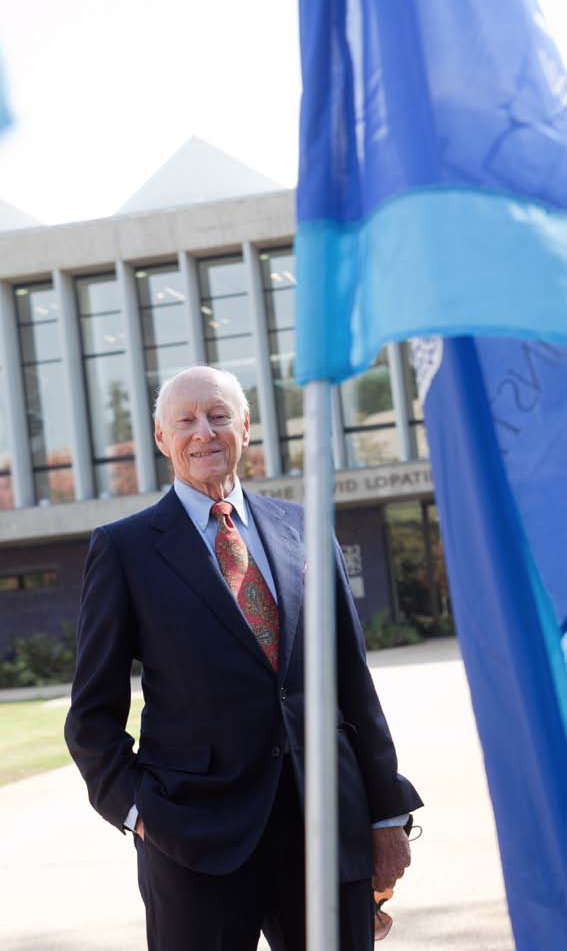The Weizmann Institute formally opened the new David Lopatie Conference Centre in a gala event on Nov. 13 honoring its South African donor. The Centre was heralded a future venue for international scientific conferences that will shine a spotlight on the Institute and its cutting-edge research.
"What appealed
to me most was
to leave behind
some structure —
that was just
my personal view
and wish."
—David Lopatie
Located prominently at the campus entrance, the Centre represents the renovation and transformation of the former Wix Library into a state-of-the-art facility that will also host meetings of the International and Executive Board, the Scientific Council, the Council of Professors, and Promotion committees. In addition, it will be the new home of the Barbara Levinson Visitors Center and the offices of the Academic Secretariat.
In an interview, Mr. Lopatie said: "What appealed to me most was to leave behind some structure — that was just my personal view and wish." He also made a major gift to support the Crossroads of Science Fund, which will seed conferences at the facility, including annual conferences named for the supporting donor.
The Centre's main meeting space is Helen L. and Martin S. Kimmel Hall, which was also dedicated on Nov. 13. "In this era of globalization, global networking is as essential in academia as in business," said President Prof. Daniel Zajfman at the dedication of the Lopatie Centre. "Thus, a high priority for the Weizmann Institute of Science — and for Israel — is to increase the number of foreign visitors from the international scientific community, and thereby provide greater exposure to Weizmann and Israeli science. We are at a disadvantage because we are located far away from the large intellectual centers. There's not much we can do about Israel's geographical and political isolation, but we can create — and have created — a world-class center on campus for international conferences."
The refurbished Visitors Center in the Lopatie building, said Zajfman, "is an exciting new element that, I believe, will enable it to rival even the science museums in the country by making science come alive in a user-friendly way for adults and children alike. It will also show in an unprecedented way how Weizmann science has contributed to understanding of health and disease," said Zajfman.

David Lopatie in front of the new David Lopatie Conference Centre
David Lopatie was born in Johannesburg and spent his childhood in South Africa's northern Transvaal, bordering Rhodesia, where his father ran a hotel. He and sister, who died in 2001, were schooled in Johannesburg.
"We were conscious of being Jews, but we were not part of the Jewish community — we were far from it," he recalled.
His father was born in Lithuania, and his mother in England. After graduating from university, David led a successful career as an accountant. Having lived through World War II and apartheid in South Africa, he said he was always keenly interested in politics and global affairs, so newspapers have been a constant companion. He retired to London in 1984, where he lived for 25 years.
He relished his years spent in London, soaking up the arts and history and enjoying a wide circle of friends. London was the ideal playground to explore his intellectual curiosity, he said, because he always "saw history through the lens of the British Empire," which originated in his mother's love of England from her childhood. But he outlived many of his London friends, and in 2010 returned to his native South Africa.
He has supported a professorial chair in post-Holocaust studies at Ben-Gurion University and the expansion of the university's library. In making his gift for the establishment of the David Lopatie Conference Centre on the Weizmann campus, he said a major factor was his appreciation for the Sieff family, longtime friends and supporters of the Institute and fellow Londoners. The Sieff family's original gift in 1934 established the Daniel Sieff Research Institute, which later became the Weizmann Institute.
